
Democracy, Elections and Reform in Cambodia
Publication Year: 2015 / Sources: COMFRELThe Committee for Free and Fair Elections (COMFREL) in Cambodia has since 2009 extended its observations and analysis of the electoral process to include the overall process of democratization process. The analytical reports on the state of democracy titled ‘Democracy, Election and Reform’ are published annually and disseminated to all interested national and international stakeholders.
Download: English | Khmer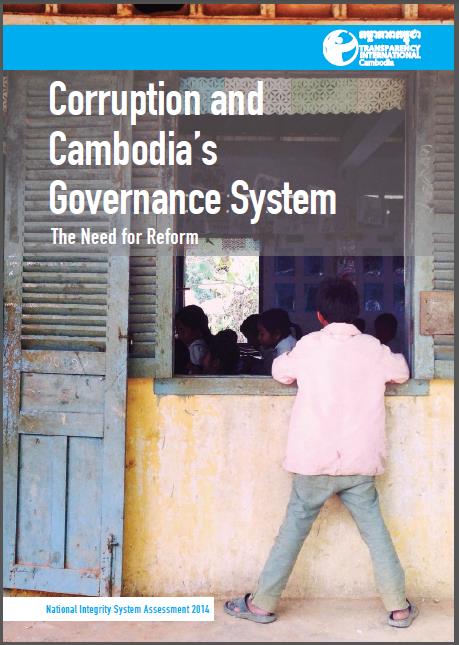
Corruption and Cambodia’s Governance System: The Need for Reform
Publication Year: 2014 / Sources: Transparency International CambodiaThe Cambodia National Integrity System Assessment provides an evaluation of the state of the country’s governance system. It assesses 13 institutions from the Judiciary to the Anti-Corruption Unit to civil society. A well-functioning National Integrity System safeguards against corruption and contributes to the larger struggle against abuse of power. Corruption undermines good governance, the rule of law, and fundamental human rights. It leads to misuse of resources, cheats citizens, harms the private sector, and distorts financial markets.Yet when governance institutions are characterised by appropriate regulations and accountable behaviour, corruption is less likely to thrive. Transparency International Cambodia has developed key policy recommendations based on the findings of this report. The recommendations, contained within, seek to engage government, donors and civil society to push forward crucial reforms to improve the integrity system. Strengthening the National Integrity System promotes better governance across all aspects of society, and, ultimately, contributes to a more just society overall.
Download: English | Khmer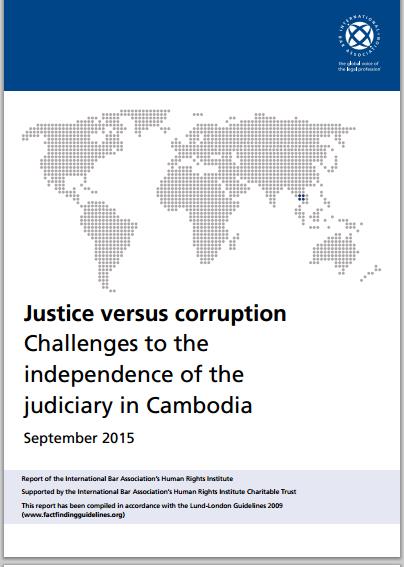
Justice versus corruption: challenges to the independence of the judiciary in Cambodia
Publication Year: 2015 / Sources: International Bar Association’s Human Rights Institute (IBAHRI)This report has been prepared following an International Bar Association’s Human Rights Institute fact-finding mission to Cambodia in April 2015. It firstly examines the independence of the judiciary in Cambodia and identify the factors, including systemic issues, affecting this independence. Secondly, the report examines whether the level of judicial independence has had an impact on the resolution of flashpoint human rights issues. Thirdly, it analyses the contribution of the legal profession of Cambodia to the independence of the judiciary. It also examines any related matters, including the responsibilities of key stakeholders.
Download: English | Khmer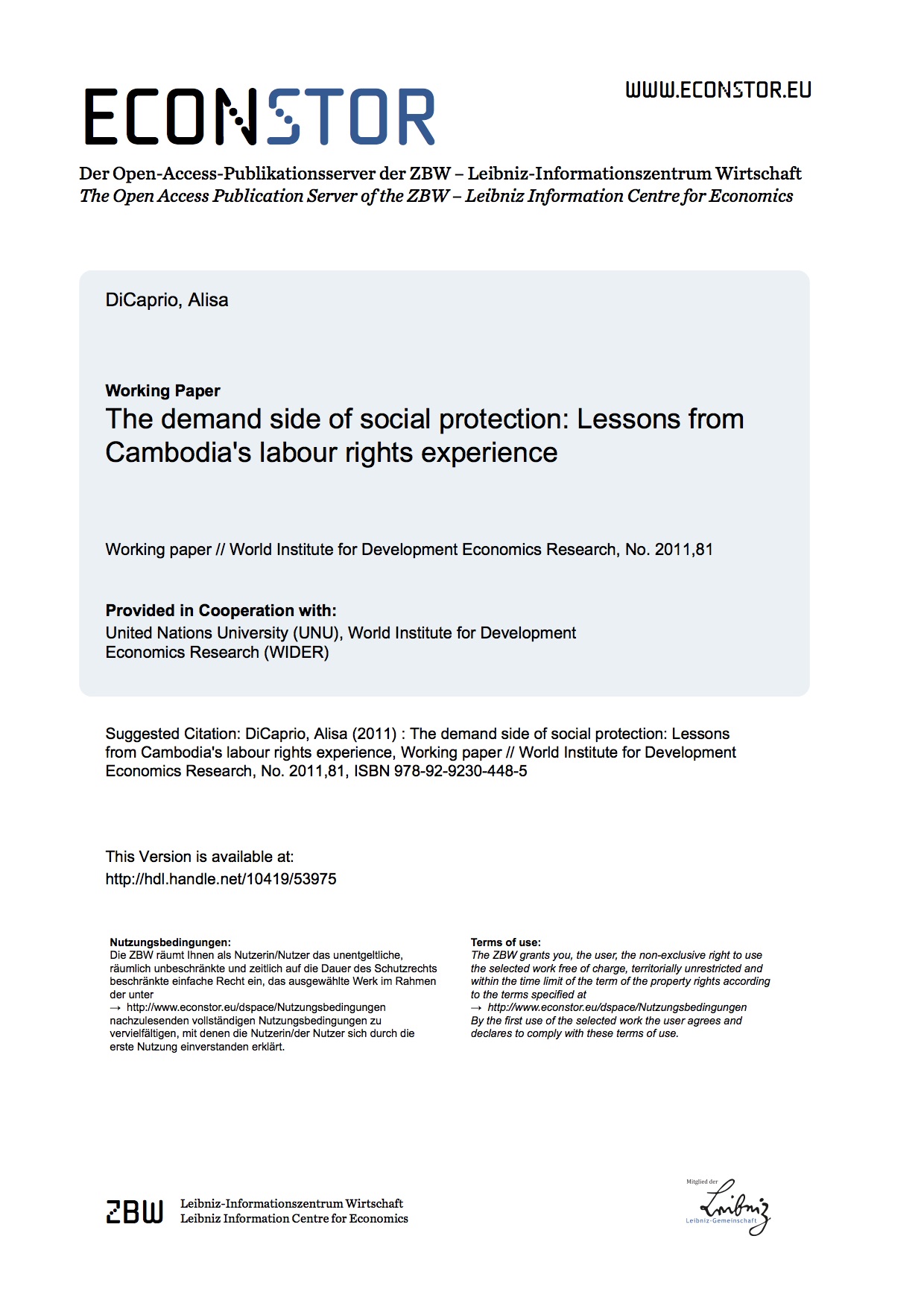
The demand side of social protection: Lessons from Cambodia’s labour rights experience
Publication Year: 2011 / Sources: Leibniz Information Centre for EconomicsIn fragile states, social protection programmes are often a kaleidoscope of projects financed and implemented by a variety of donors, government agencies and NGOs. Such an environment does not foster a strong sense of ownership by beneficiaries, which weakens the likelihood of sustainability in the absence of donor interest or government commitment. Loosening demand-side constraints may provide incentive to sustain social progress, but it is unclear what political or social structures can effectively facilitate voice in fragile states. Cambodia’s unusual social protection trajectory offers some insight by presenting an example where labour rights has made substantial progress while all other protections lag. We assess whether the changed external environment might facilitate activism in other areas of social protection. Our analysis suggests that using an island of excellence to build institutions that open political space for activism can be a successful strategy in states where governments are unable or unwilling to provide comprehensive social protection systems.
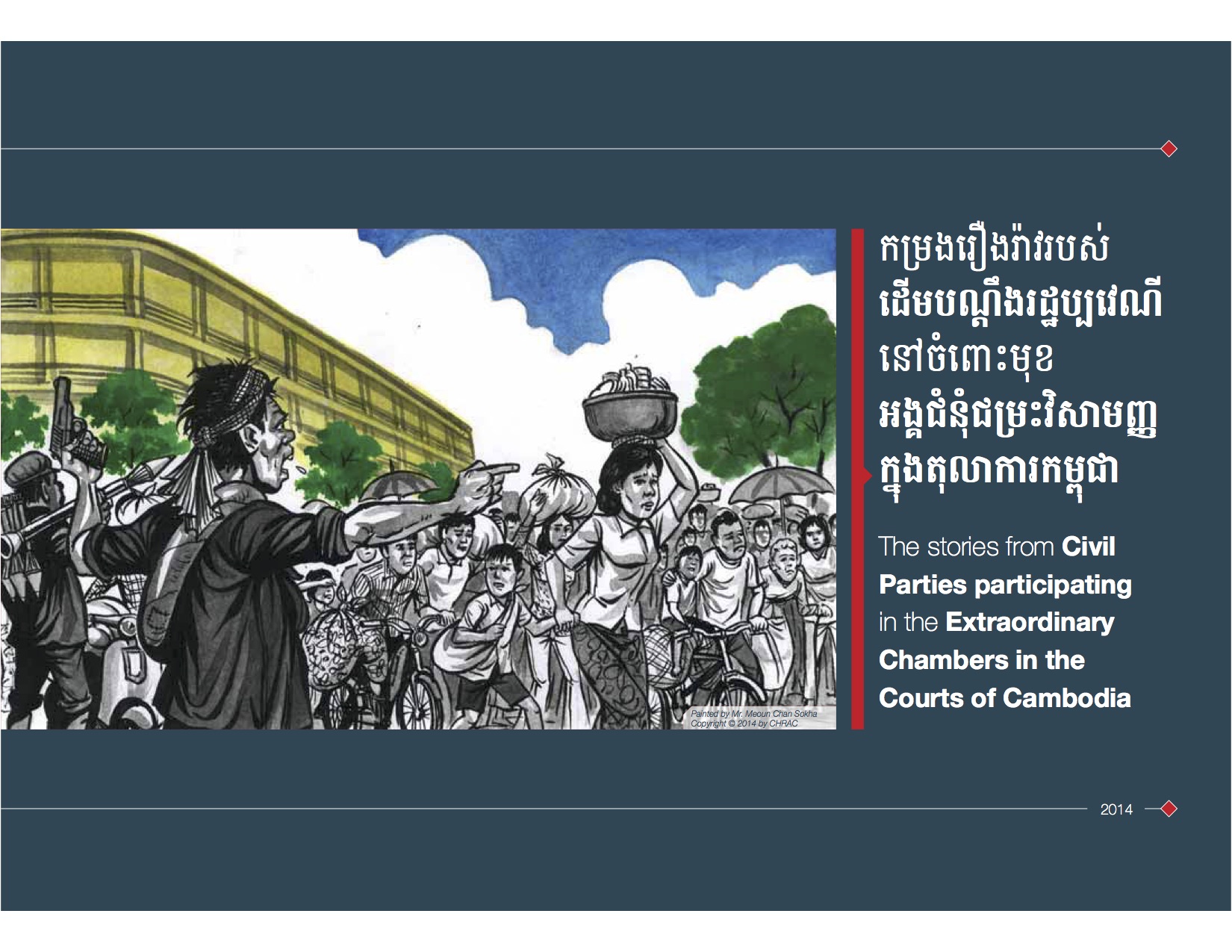
The stories from Civil Parties participating in the Extraordinary Chambers in the Courts of Cambodia
Publication Year: 2014 / Sources:The stories in this book represent the true experiences of survivors who applied to be Civil Parties at the Extraordinary Chambers in the Courts of Cambodia (ECCC), also known as the Khmer Rouge Tribunal. Most of the accounts were extracted from victim information forms and testimonies before the ECCC. Our team at CHRAC has met with each of the contributing Civil Parties individually to obtain their consent for publication and to review and develop their story. Through this process, we aimed to ensure that all stories are accurate and authentic.
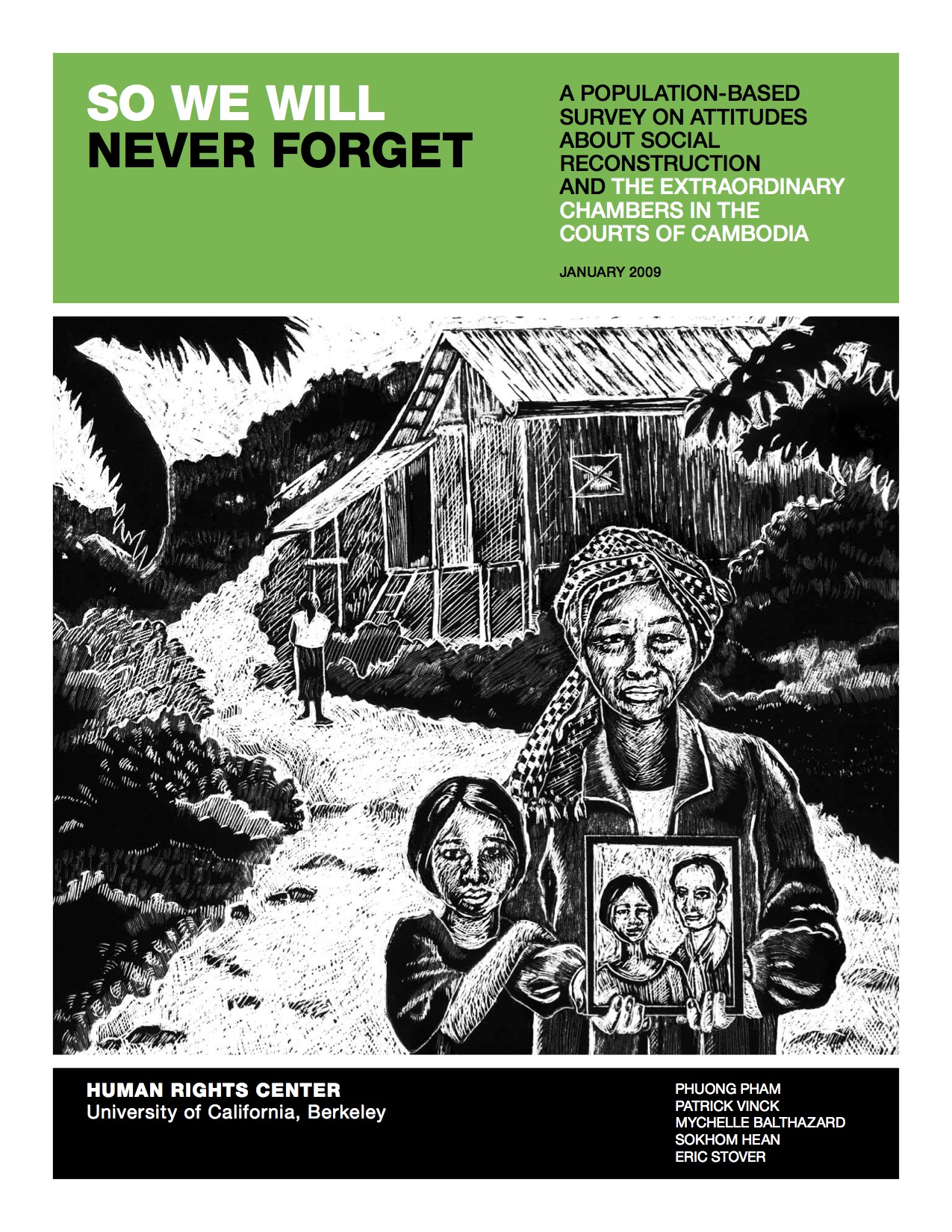
So We Will Never Forget: A Population-Based Survey On Attitudes About Social Reconstruction and the Extraordinary Chambers in the Courts of Cambodia
Publication Year: 2009 / Sources: Human Rights Center, University of California, BerkeleyThis report presents the findings of a nationwide, population-based survey undertaken by the Human Rights Center’s Initiative on Vulnerable in Cambodia. The survey sought to capture opinions and attitudes about accountability, social reconstruction, and the ECCC. Teams of interviewers used a structured questionnaire to interview 1,000 Cambodians 18 years old or older, randomly selecting 125 communes out of 1,621 using systematic random sampling proportionate to population size. Two villages were randomly selected from each commune, resulting in a sample size of 250 villages. Analysis of the report concluded with specific recommendations of ways in which the ECCC, Cambodian judicial and administrative institutions, civil society, and the international community can ensure that Cambodians become engaged participants in—and not merely auxiliaries to—the work of the court.
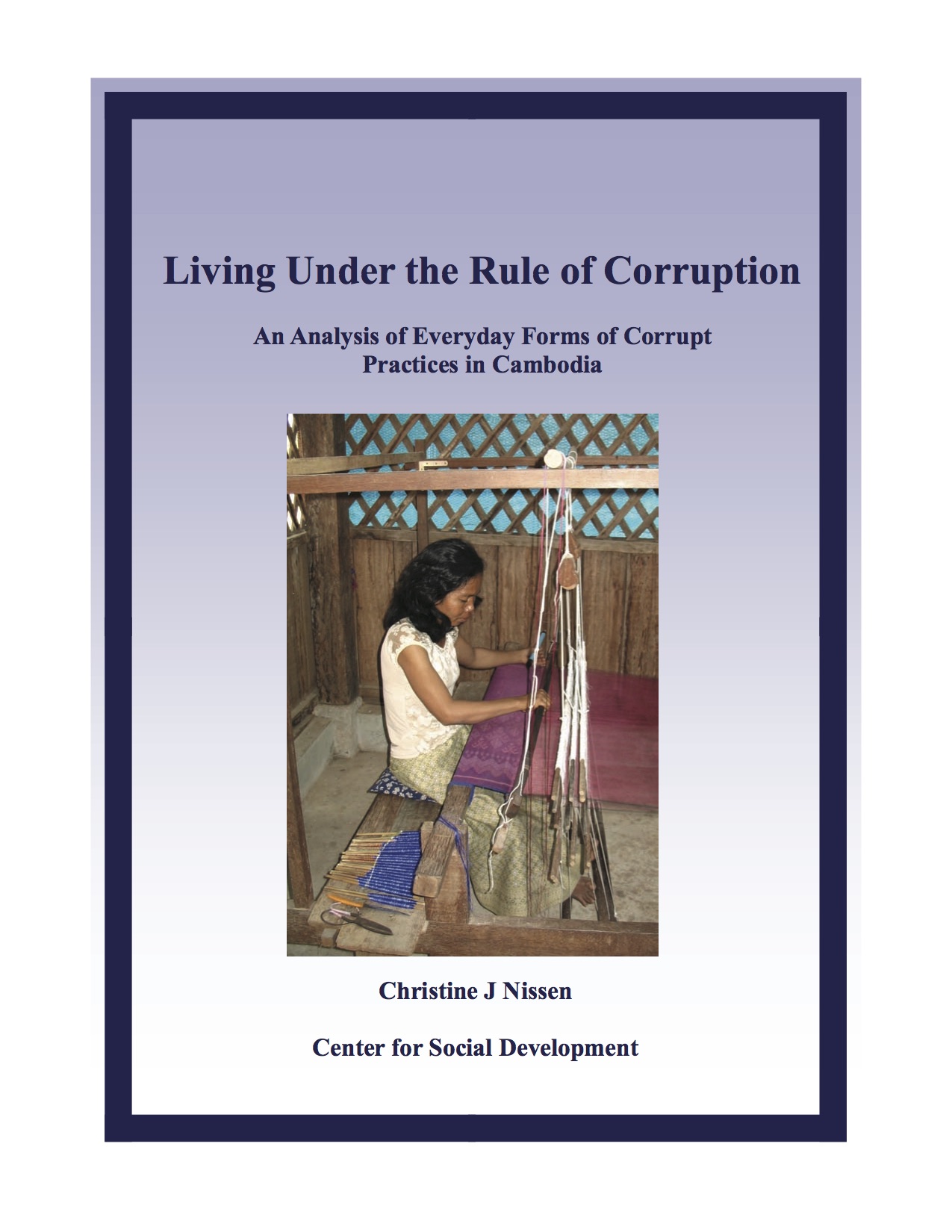
Living Under the Rule of Corruption
Publication Year: 2005 / Sources: Center for Social DevelopmentThe Center for Social Development initiated the research project entitled “The Impact of and Attitudes Towards Corruption” in order to document and analyze corrupt practices experienced by ordinary citizens when they encounter civil servants in local bureaucracies and institutions. The study aims to give voice to ordinary Cambodians in the debate on corruption in the country. The study consists of qualitative and quantitative components. This report describes findings from qualitative research in two provinces.
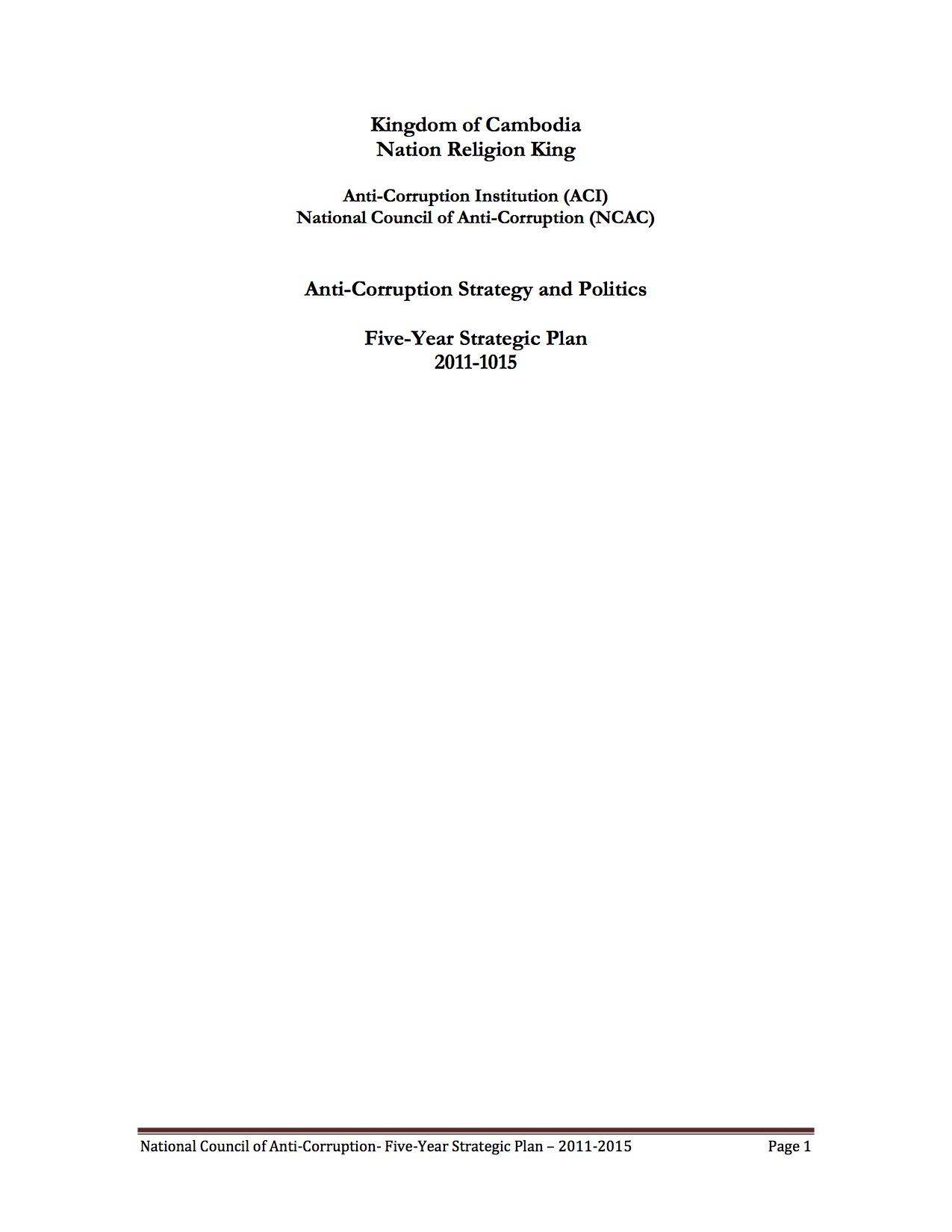
Anti-Corruption Strategy and Politics
Publication Year: 2011-2015 / Sources: National Council of Anti-CorruptionFor the Royal Government of Cambodia (RGC), good governance is the crucial sine qua non to achieve the sustainable and equitable economic development and social justice. Good governance requires dynamic participation and determination from various sectors in the society with accountability, transparency, equity, inclusiveness and the rule of law. The RGC always considers corruption as an obstacle to economic development, rule of law, democracy, social stability; and it is also the cause of poverty.
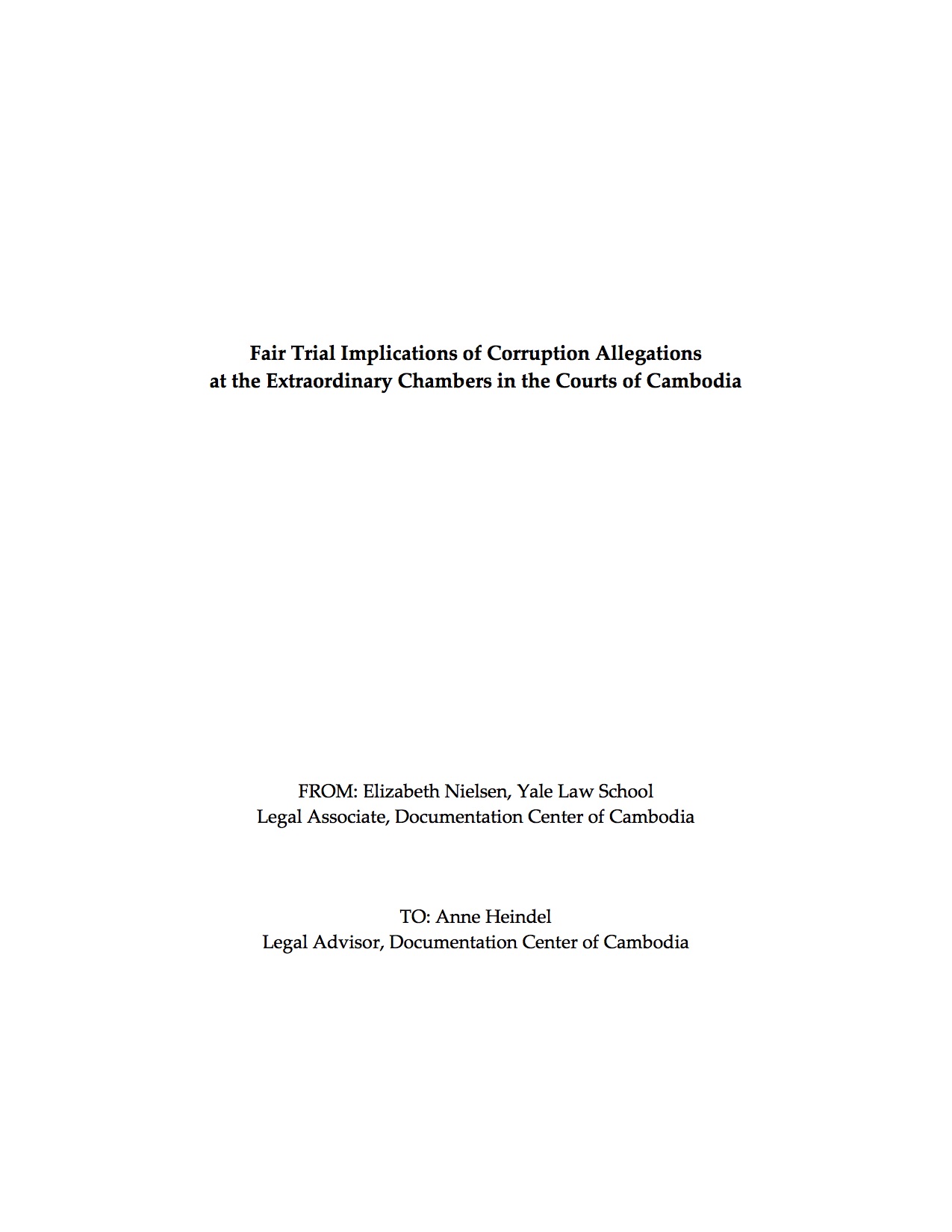
Fair Trial Implications of Corruption Allegations at the Extraordinary Chambers in the Courts of Cambodia
Publication Year: -- / Sources: Documentation Center of CambodiaThe right to a hearing before an independent and impartial court is a cornerstone of fair trial practice in both international and domestic law. An independent and impartial court or tribunal is a requirement of customary international law, as well as of all general universal and regional human rights instruments. Domestic legal systems contain similar requirements; most relevant to the ECCC is the Constitution of the Kingdom of Cambodia, which provides that the judiciary “shall be an independent power” that “shall guarantee and uphold impartiality and protect the rights and freedoms of the citizens.” In accordance with these standards, ECCC law has incorporated independence and impartiality requirements. This memo will address the fair trial implications of administrative and judicial corruption if members of the Office of Administration and judges at the ECCC engage in a kickback system in exchange for employment.
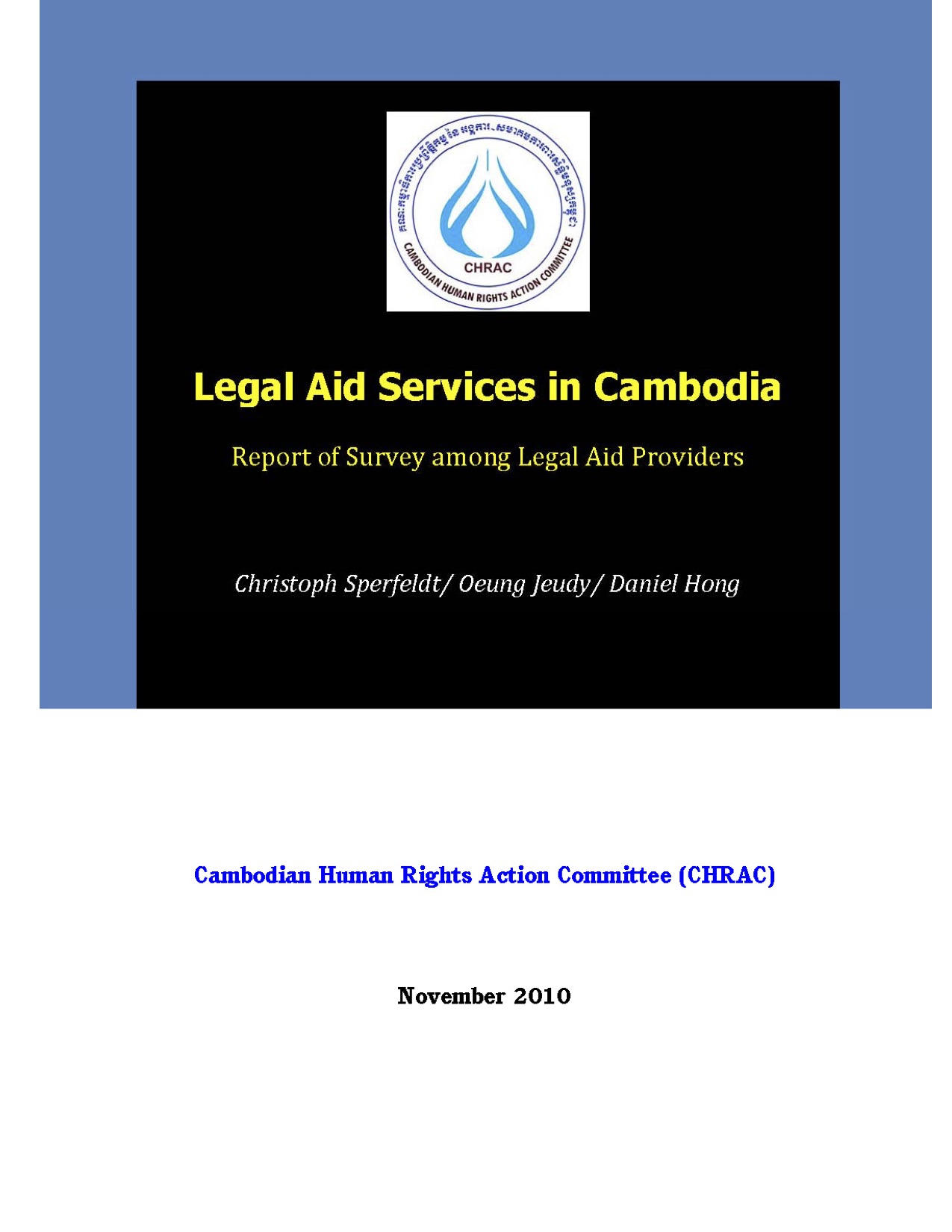
Legal Aid Services in Cambodia
Publication Year: 2010 / Sources: Cambodian Human Rights Action Committee (CHRAC)This paper aims at informing these discussions about an integrated and inclusive legal aid framework through the following objectives: (1) updating the numbers of available (fulltime) legal aid lawyers in Cambodia, since it is assumed that there have been changes since the 2006 survey; (2) identifying the presence of legal aid lawyers outside the capital in the provinces and corresponding regional gaps in the provision of services; (3) providing an indication about the capacity of these legal aid providers (i.e. the number of cases they are dealing with); and (4) identifying the thematic specialization of existing legal aid providers (i.e. whether they focus on general legal aid or on specific target groups). In addition, the question was asked at the end of each interview about the respondents’ opinion on what needs to be done to improve the situation of legal aid services in Cambodia. Fact sheets in annex summarize key features of each interviewed legal aid providers.
